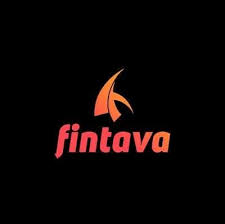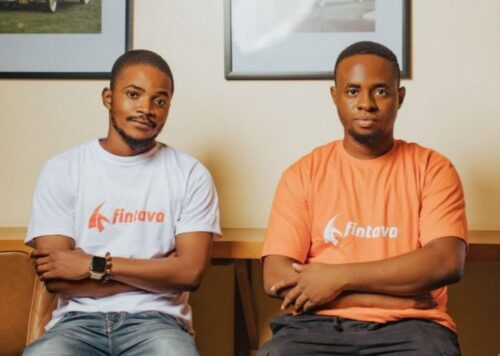
During Nigeria’s fintech boom between 2020 and 2023, many fintech companies championed the mission of “banking the unbanked,” targeting the 36% of Nigeria’s adult population—approximately 28.8 million people—without access to formal financial services. However, only a few went beyond Lagos, the country’s economic hub, to address the financial inclusion gap in more rural regions.
Founded in 2022 by Tobi Arowolo, Samuel Ojerinde, and Isaiah Tokinbo, Fintava Pay emerged to fill this gap.
As a Banking-as-a-Service (BaaS) platform, Fintava Pay enables businesses such as microfinance banks, cooperatives, and agent networks to create tailored financial products designed to serve rural and financially excluded communities—especially in Northern Nigeria.
Unlike typical fintech startups that offer direct-to-consumer apps, Fintava Pay focuses on white-label solutions, allowing partner institutions to deliver customized banking services under their own brands. This model is critical in regions like Northern Nigeria, where digital literacy remains low and financial exclusion is highest—38% in the North East and 47% in the North West.
Recognizing the unique challenges of Northern Nigeria, Fintava Pay designs solutions in Hausa, a widely spoken local language, and implements non-smartphone-dependent transaction verifications, addressing limited smartphone penetration. “We continue to comply with CBN’s mandated protocols for opening bank accounts, including BVN and NIN verification,” explained Samuel Ojerinde, co-founder of Fintava Pay.
One of the company’s standout security measures involves sending one-time passwords (OTPs) to three separate family members during onboarding, ensuring agents cannot misuse customers’ accounts.
Additionally, recognizing that many customers lack smartphones, Fintava Pay provides ATM cards for cash withdrawals, while adhering to strict security checks before issuance.
Fintava Pay’s strategy heavily relies on collaborating with trusted super-agent networks, such as BusyPay in Kano, to facilitate faster adoption. “The founder of BusyPay told us, ‘If I had the right technology, I could onboard thousands overnight,’” Ojerinde shared. Within 24 hours of launching BusyPay’s custom banking app powered by Fintava Pay, the platform recorded 1,000 downloads, quickly onboarding customers previously excluded from formal banking.
Beyond low digital literacy, cultural and religious beliefs in Northern Nigeria present another barrier, particularly aversion to interest-based banking. Partnering with trusted local agents helps Fintava Pay bridge this trust gap. “There are individuals who avoid traditional banks because of associations with interest-based practices. However, when a trusted agent introduces banking services, they are more open to participating,” Ojerinde noted.
Fraud remains a major concern in financially underserved regions. Fintava Pay ends risks through rigorous agent vetting, multi-factor identity verification, and family-based OTP authentication.
“We’ve seen cases where individuals unknowingly expose their BVN, leading to unauthorized loans,” Ojerinde said. To prevent such incidents, Fintava Pay employs ethical hackers to regularly assess and patch vulnerabilities in its system.

While Fintava Pay’s core focus is Nigeria, the startup is already exploring partnerships in Zambia to replicate its model. “This challenge of financial exclusion is not unique to Nigeria. Many African countries face similar issues,” Ojerinde emphasized.
Though actively bootstrapped by its founders, Fintava Pay is considering fundraising for expansion. However, Ojerinde stressed, “We want to demonstrate scalability before taking external investment.”
Fintava Pay generates income through service fees, subscription plans, and transaction charges. Businesses pay to access its API infrastructure, which allows them to offer banking services without requiring a formal banking license.
The platform also charges monthly subscription fees for platform maintenance and collects a percentage of wallet top-ups, transfers, bill payments, and ATM withdrawals. Additionally, it earns from debit card issuance and custom integrations for partners.
Since inception, Fintava Pay has processed over ₦30 billion (~$38 million) in transactions, serving over 100,000 customers.
What sets Fintava Pay apart from other BaaS providers like Bloc, Anchor, and Maplerad is its focus on customized solutions for rural and financially excluded communities, rather than offering generic APIs.
Unlike direct agent-led fintech models like Moniepoint and Opay, which do not offer backend white-label solutions, Fintava Pay empowers businesses to build and own their branded banking services.
Notably, Fintava Pay provides instant settlements for businesses—unlike some competitors that hold funds for up to 24 hours—and offers flexible, negotiable pricing based on transaction volumes.
Currently, Fintava Pay operates in Nigeria’s North, East, and West, with no plans to enter Lagos, as the company focuses on rural regions. “You want to focus on other parts of the country where people are not focusing,” Ojerinde added.


